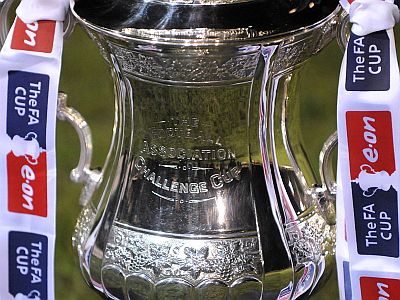|
Ironically, one of those suggestions floated in the papers involved moving FA cup ties to midweek so that this inconvenience becomes the norm, which may reveal something about the remoteness and insensitivity of those responsible for dreaming them up. The FA cup is about supporters from teams great and small contributing to an atmosphere made keener by the finality of the cup-tie contest. At its best, it was a competition which enfranchised the average fan.
That is the brand which the television companies promote when they launch their cliché-ridden coverage of each and every televised cup tie. No doubt ESPN will do the same next Monday night. Yet the emptiness of the away end will tell a different tale: by placing the interests of television companies ahead of the interests of the supporters, the FA undermines the product they seek to protect.
And a day earlier, but a few miles away, Leyton Orient will have played Arsenal in a cup-tie in the classical tradition. It should be a fine occasion for a club which epitomises the character of English lower-division football: a stable, self-sufficient community institution, maintaining good crowds and competing at a standard way above that of equivalent leagues in almost any other country.
But Orient had better enjoy these occasions whilst they last, because their long-term viability is about to be threatened. The finances of most lower-division football clubs are increasingly parlous. Orient, though, face the prospect of an aggressive neighbour moving its furniture into an enormous extension on their own front lawn.
West Ham are promising to fill their new 60,000 seater stadium - entirely out of proportion to their traditional gates - with customers lured by cheap tickets and free school tickets drawn from within Orient's natural catchment. Even if the claim on Orient's website that Brisbane Road is just, 'a long goal kick from the Olympic Stadium' seems a tad unlikely, it is indisputable that the move has grave consequences for one of London's oldest clubs.
The FA has the power to intervene - indeed, it should be duty bound to do so, as a consequence of its own rules which prevent clubs from relocating when doing so would adversely affect other clubs. But it won't. It will waive the idea through. In this era when the will of the biggest and most powerful clubs is overwhelming, it hasn't the teeth or desire to do anything else.
And what has this to do with the viability of the FA Cup? Well, it is emblematic on the widening gulf between the various tiers of the English professional game. Mutual respect between clubs at all levels has been replaced with patronising indifference and all-consuming self-interest. And that in itself threatens the future of the Cup.
In part, this is because the vested interests of the all-powerful few have pushed the FA Cup towards the margins, suffocated by cross-border exhibition matches masquerading as meaningful competition in the early stages of the Champions League. European competition finally becomes competitive just in time to disrupt the natural three-week rhythm of cup ties and replays.
But the threat also arises from the overwhelming concentration of talented footballers and media attention at the top end of the game. Matches suffer because the gap in quality between opponents is too great, and because they are perceived by supporters as second rate. Particularly when bigger clubs host the minnows, there is an increasing and dispiriting inevitability to both the result and the empty seats.
The great tradition of the FA cup is based on the depth of quality and support of football clubs throughout the entire professional game in England. It was this that enabled it to produce consistently evenly matched ties at every round, creating an unpredictable competition which threw up a rich tradition of diverse stories and folk-heroes.
This tradition of equality and unpredictability, together with its accessibility to supporters, gave the cup its unique appeal. Those foundations have all but disappeared and as the game travels inexorably in a single direction, they will erode still further - until the continuing glory of the cup is acknowledged for the myth it has become.
The appeal of the competition has been irreversibly reduced to a hollow brand supported only by its history. The only valuable currency is in those occasions like Orient versus Arsenal, when David hosts Goliath. And even the attractiveness of these exhibition affairs diminishes with every anti-climactic victory for the Premier League team.
There are other factors at work, of course: the rise of season tickets, the proliferation of football on television. But 'real' cup football is simply incompatible with an uneven game which is in thrall to television. The FA Cup has become irrelevant. It is a lamentable outcome, but one that no amount of superficial tinkering will alter.

